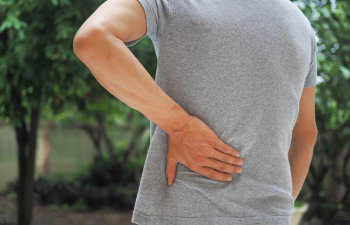
Femoroacetabular Impingement (FAI) is a painful and debilitating condition that affects the hip joint, primarily impacting young and active individuals. It occurs when there is an abnormal interaction between the femur (thigh bone) and the acetabulum (hip socket), leading to pain, reduced range of motion, and damage to the hip joint. Fortunately, advances in medical technology have given rise to a minimally invasive surgical procedure known as arthroscopy, which has proven highly effective in relieving FAI dysfunction.
FAI Dysfunction: Understanding the Problem
Before delving into the role of arthroscopy in treating FAI dysfunction, it is crucial to understand the condition itself. FAI can be classified into two main types: cam impingement and pincer impingement. Cam impingement occurs when the head of the femur is not perfectly round and, as a result, cannot smoothly rotate within the acetabulum, leading to friction and damage. Pincer impingement, on the other hand, results from an overgrown acetabulum that pinches the femoral neck, causing pain and limited mobility.
These impingements can occur separately or in combination, and they often lead to the development of osteoarthritis if left untreated. FAI dysfunction typically presents with symptoms such as groin pain, stiffness, and a decreased ability to perform physical activities. Conservative treatments, such as physical therapy and medication, may provide temporary relief but rarely address the underlying structural issues.
The Role of Arthroscopy
Arthroscopy is a minimally invasive surgical technique that has revolutionized the treatment of FAI dysfunction. Unlike traditional open surgery, which involves larger incisions and longer recovery times, arthroscopy employs small incisions and specialized instruments to access and repair the affected joint. Here’s how arthroscopy plays a pivotal role in addressing FAI dysfunction:
Accurate Diagnosis
Arthroscopy allows surgeons to visualize the hip joint directly, providing a clear and precise diagnosis of the specific impingement type and extent of joint damage. This accurate assessment is essential for planning the most effective treatment strategy.
Minimally Invasive
Arthroscopy minimizes tissue damage and scarring, resulting in less post-operative pain and a faster recovery period. Patients can often return to their normal activities sooner than with open surgery.
Customized Repair
With arthroscopic tools, surgeons can tailor their approach to each patient’s unique condition. They can trim or reshape the bone to eliminate impingement, repair damaged cartilage, and address any other joint abnormalities.
Reduced Complications
Arthroscopy carries a lower risk of complications compared to traditional open surgery. Infection rates are lower, and the chances of damaging surrounding tissues are minimized.
Faster Rehabilitation
Patients undergoing arthroscopic FAI surgery typically experience shorter hospital stays and require less time in physical therapy. A quicker recovery allows individuals to regain their mobility and return to their daily routines faster.
Improved Outcomes
Studies have shown that arthroscopic treatment of FAI dysfunction leads to improved long-term outcomes and a reduced risk of developing osteoarthritis. Patients often report significant pain relief and improved hip function.
Potential for Future Prevention
By addressing FAI dysfunction early with arthroscopy, patients can potentially prevent the progression of the condition to severe osteoarthritis, preserving their hip joint health for the long term.
Arthroscopy has emerged as a game-changer in the treatment of femoroacetabular impingement (FAI) dysfunction. As a result, individuals suffering from FAI dysfunction can now look forward to a brighter future with reduced pain, restored mobility, and the potential to prevent further joint damage. To learn more about arthroscopy for FAI dysfunction, contact our team at Robotic Hip and Knee Replacement LA. Call our office in Los Angeles, CA, to schedule a FAI treatment consultation with Dr. Farzin Kabaei.
Posted on behalf of
8436 West 3rd Street Suite 800
Los Angeles, CA 90048
Phone: (310) 792-9300
Email: fk@docsspineortho.com
Mon - Fri 8AM - 5PM